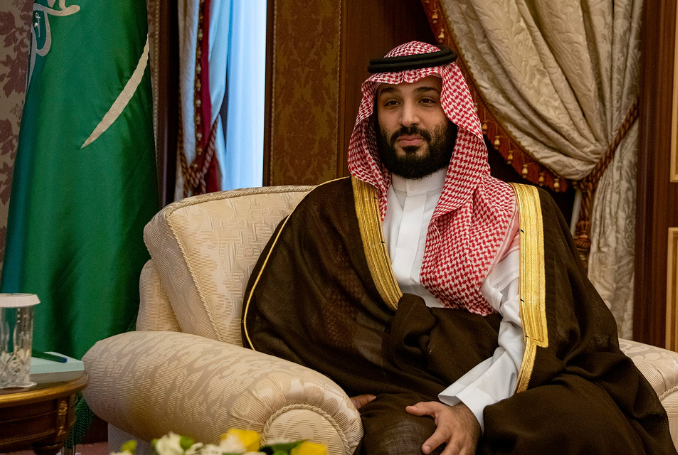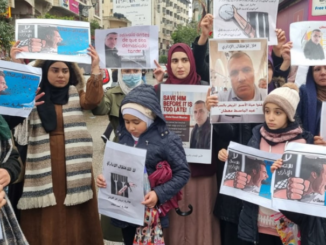
The Saudi-Israeli normalization deal seemed ‘imminent’. That’s, at least, what we gleaned from Israeli and Western media in recent months. But instead of a normalization deal, the Saudis initiated their own peace plan. So, what happened and how did things go wrong for Israel?
On Monday, September 16, a new peace plan for Israel and Palestine was launched, during a closed-door meeting on the sidelines of the UN General Assembly currently taking place in New York.
The meeting, which was reportedly attended by nearly 70 countries and international organizations, was led by Saudi Foreign Minister Prince Faisal bin Farhan.
The meeting was finalized at producing a ‘Peace Supporting Package’, which “will maximize peace dividends for the Palestinians and Israelis once they reach a peace agreement.”
Is It the First Time Saudis Present a Peace Plan?
No.
Since the start of the so-called Arab-Israeli conflict, Arabs have made several overtures for peace, most of them supported by the Saudi government.
In 2002, the Saudi government led its own pan-Arab initiative, which became known as the Arab Peace Initiative.
This happened during the reign of King Abdullah bin Abdulaziz Al Saud, who died in 2015.
The Arab Peace Initiative called for “Israel’s complete withdrawal from territories occupied in 1967, based on United Nations Security Council Resolutions (UNSCRs) 242 and 338;
It also called for a “ just settlement of the Palestinian refugee question on the basis of UNSCR 194” and the “recognition of East Jerusalem as the capital of an independent Palestinian state.”
Back then, Palestinians welcomed the Arab Peace Initiative as they found it to be consistent with the spirit of international law. Israel, however, rejected it.
Some in the Israeli government still welcomed the possibility that Arabs were interested in normalizing with Israel. For two decades, Israel invested in the normalization aspect of the Peace Initiative without granting Palestinians any of their rights.
Did This Work?
Unfortunately for Palestinians, Israel ultimately managed to break the unity of the Arabs, thus creating separation between Arab normalization and its occupation and apartheid in Palestine.
Starting in 2020, UAE, Bahrain, Morocco, and Sudan normalized ties with Israel.
The understanding was, at least as conveyed in US mainstream media, that the Saudi-Israeli normalization was imminent.
So, Are the Saudis Normalizing?
No. Following many leaks in US but also Israeli media of secret meetings between top Saudi and Israeli officials under US auspices, the Saudi newspaper Elaph on Sunday, September 17, reported that “Saudi Arabia has informed the US Administration to stop any discussion related to normalization with Israel”.
Prior to that report, the impression given by US-Israeli media was that negotiations over the supposedly imminent normalization evolved entirely on specific Saudi asks that had nothing to do with Palestine.
US Secretary of State Antony Blinken, however, in more recent reports, has said that the Palestinian issue would play a central role in any future normalization agreement with Israel.
“It’s … clear from what we hear from the Saudis that if this process is to move forward, the Palestinian piece is going to be very important,” Blinken said in an interview with the podcast ‘Pod Save the World’ on September 13.
Blinken’s statements indicated that the Israeli media misrepresented the Saudi position and that Palestine was, in fact, on the table.
This was confirmed in the latest reports in Elaph, the Palestine Chronicle, and other newspapers, which were later picked up by mainstream media.
Blinken Addresses the Question: Is Palestine Central Issue for Saudi-Israeli Normalization?
Is the Latest Peace Initiative Related to the Failed Normalization?
Absolutely. In comments made to The Palestine Chronicle, Dr. Ramzy Baroud said that “All we need to do is to compare the political context of the Arab Peace Initiative with the current political context of the latest Saudi-led peace initiative”.
“In both situations, the Saudis were under pressure to press Palestinians in favor of Tel Aviv and Washington. And in both cases, this has failed,” Baroud added.
“Saudi Arabia now is in a much stronger position than it was during the Second Intifada (2000-2005). Therefore, it makes no sense for Riyhad to lose credibility among Arabs and Muslims by normalizing with Israel without gaining a single meaningful concession from the far-right government of Benjamin Netanyahu.”
Indeed, Netanyahu’s “most extreme government in the history of Israel” has made it clear that no concessions will be made to the Palestinians as far as territorial concessions, control over the holy sites, the merger of all West Bank areas that have been divided by Israel, are concerned.
Report: Saudi Arabia Freezes Normalization Talks with Israel over Palestine
Naturally, this meant that a Palestinian state, even if disarmed and only established over parts of the West Bank, is practically impossible.
This led to a clear understanding in the Saudi government that Israel is not serious about normalization.
The Saudi Peace Initiative comes at this specific time to indicate that even though Israel is not serious about peace in the region, the Saudis are.
“The timing of the move is particularly clever,” Baroud said, “as it will deflect pressure from the Saudis and instead, place the pressure on Israel, especially that many countries around the world have already supported the renewed push for a just peace.”
(The Palestine Chronicle)








